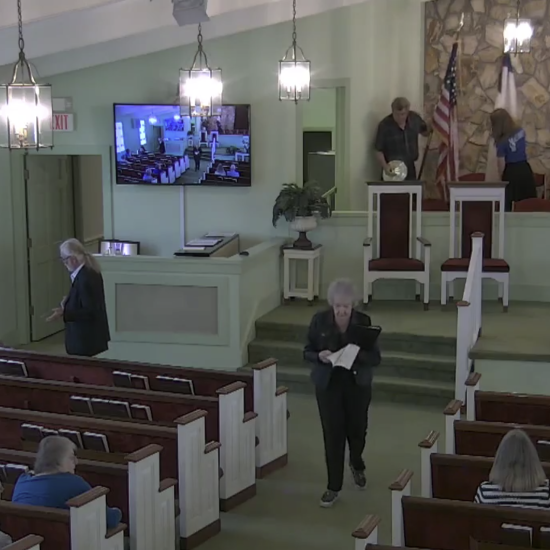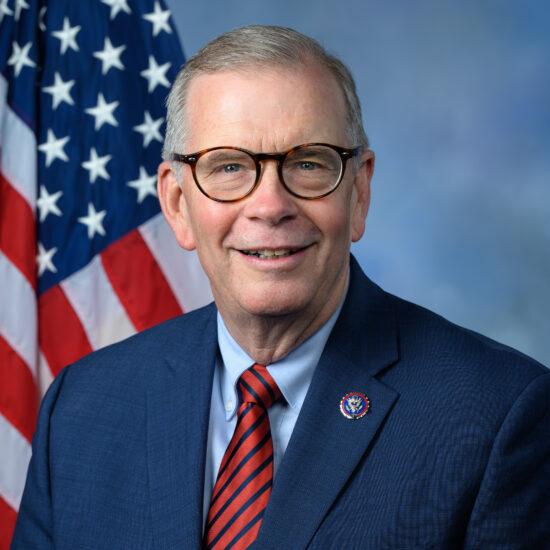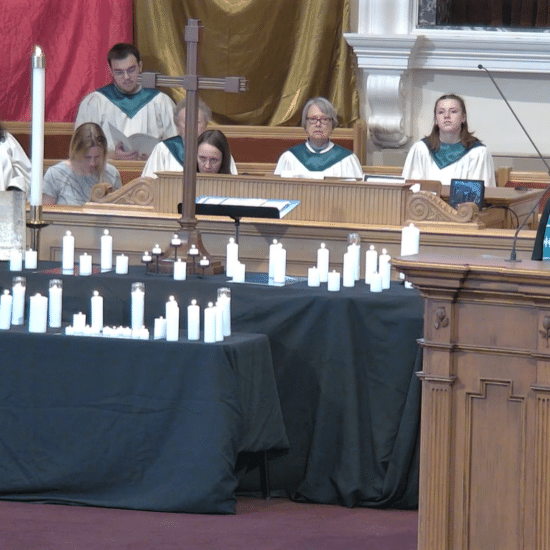Is it possible to hold fast to historic Baptist principles while also achieving spiritual relevance in today's world? For the past ten years, the answer to that question has been 'yes,' according to leaders at Churchnet: A Baptist Network Serving Churches.
The organizational model of the 10-year-old Churchnet often has been compared to that of historic Baptist associations.
When Baptist associations were birthed in America in 1707, one benefit was that churches in geographical proximity to one another were able to build relationships, according to Jim Hill, Churchnet's executive director since 2004.
"These churches were strengthened through these relationships, and they found ways to work together to extend the Kingdom," he explained.
Even now, he continued, some 300 years later, "Churches still find it beneficial to build relationships and networks for collaboration and cooperation."
In many ways, "Churchnet functions much like an association did in the early years" without the constraints of geographical proximity, agreed Donna Potts, current vice president for Churchnet.
"At Churchnet, we want to serve churches in any way we can."
Modern technology has provided numerous innovative ways for Churchnet to do just that.
Today, instead of delivering circular letters to sister churches on horseback, churches involved in Churchnet are discussing and recommending resources through a database on the Internet. Instead of traveling for days to attend a training session, church leaders are trained virtually through simulcasts. Instead of building relationships that might only have occasional opportunities for personal communication, individuals' relationships are as close at the next email, text message or video telephone call.
Churchnet's stated mission is: "serving churches as they fulfill the Great Commandment and the Great Commission."
Believing that "churches are the primary agency for Kingdom work," Hill said that Churchnet's nine staff members are working together to facilitate "churches serving churches, where genuine collaboration between and among churches can occur."
Each staff member serves Churchnet bivocationally, working part-time from home offices while also serving in a local church setting either vocationally or as a volunteer.
Such an approach helps keep Churchnet staffers "grounded in real life church versus the theoretical," explained Doyle Sager, pastor of First Baptist Church, Jefferson City, Mo., and current Churchnet president. Hill serves his church as administrator.
"It also models efficiency and stewardship with low overhead," he added, which translates into more dollars being invested in Churchnet's overarching purpose, played out in several key initiatives, including:
1. Resource center. The resource database, on Churchnet's website (www.thechurchnet.org), encourages individuals to discover as well as list, rate and/or review resources. With thousands of resources available instantly in today's world, this database allows individuals to identify those that are most helpful.
2. Training. While Churchnet still plans to offer local training events, it also will offer specialized training through webinars for multiple congregations. Some training will be provided by organizational partners with expertise in specific areas. Also recordings from various training events will be downloaded for the Churchnet website and available for playback.
In one training partnership, Churchnet provides scholarships for first time attendees at Willow Creek's annual Leadership Summit Simulcast. Through that summit, "More and more pastors and laity get exposed to best practices and have their imaginations stoked with possibilities," exclaimed Sager.
3. Relationship network. These relationships may organize through affinity groups, collaboration groups, discussion groups and so forth. The groups may be public or private, with the primary purpose of each being to create an environment where collaboration can occur. Again, many of these relationships are formed virtually on the Churchnet website, where members can post questions or comments, inviting others to respond.
4. Consultations. Churchnet staff are available to consult with churches on several key topics and are also enlisting other local church leaders willing to serve in consultative roles with other churches.
In addition to these four initiatives, Churchnet serves its member churches by bringing focus to missions, church planting and relationships with sister Baptist institutions such as universities.
Also, because "our network understands how important it is to be a part of the broader Christian family," said Hill, Churchnet partners with numerous Christian, including several other Baptist, organizations. A growing list of local, national and world partners is included on the Churchnet website. Churches are encouraged to network with the partners that will enhance their particular ministries.
A significant partner for Churchnet is the Baptist World Alliance (BWA) and its North American regional body, the North American Baptist Fellowship (NABF), where Hill will begin a two-year term as president beginning July 1. Potts, a Churchnet officer, also serves on the executive committee of NABF.
"Our involvement in the NABF and BWA helps give us better perspective on the larger Kingdom and provides us with opportunities to work with and learn from Baptists from around the world. I hope our involvement will continue to grow during the coming years," said Hill.
During the 2012 NABF, the focus of the North American Missions Offering is on Churchnet.
Reflecting on Churchnet's tender age and far-reaching vision, Hill acknowledged the challenges of change.
"Our journey with Churchnet is a journey that will take time," he said.
A large part of his task has been to walk with church leaders through this "new paradigm of communication and collaboration." Today's churches often "think of denominational life in one way," a static approach in which the denomination can become removed from daily church life, he explained.
Churchnet's approach, he elaborated, is that denominational organizations exist for churches, rather the other way around. The twenty-first century, he believes, is not a "post-denominational era;" rather, it is an era where the denomination is not "out there, it is within the member churches. The member churches are the denomination."
In recent days, member churches have connected and provided training for one another, gone on mission trips together or planned children's camps together.
"These grassroots efforts are examples of churches collaborating to make something happen," said Bill Miller, pastor of First Baptist Church, Farmington, Mo., and a past president for Churchnet.
Those types of success stories keep Hill plugging away, encouraging and challenging churches to connect.
"I see the network broadening its focus in the future," predicted Hill. Today, most member churches are located in Missouri, but every month, he said, "someone connects with us from another part of the world."
Sager, likewise, is optimistic about Churchnet's future, saying, "The movements and denominations that survive and thrive in the future will be lean, efficient and firmly grounded in local church practices."






